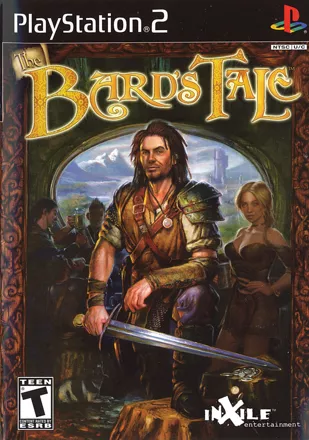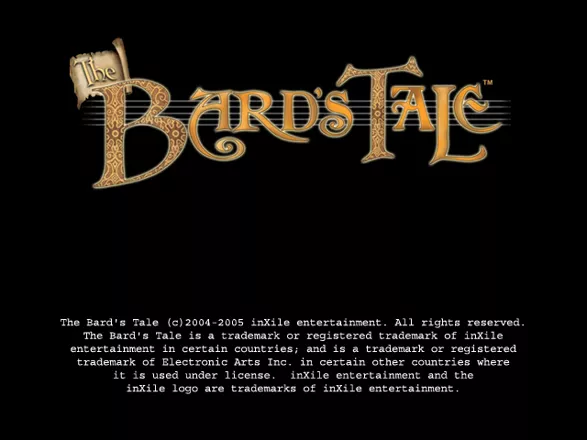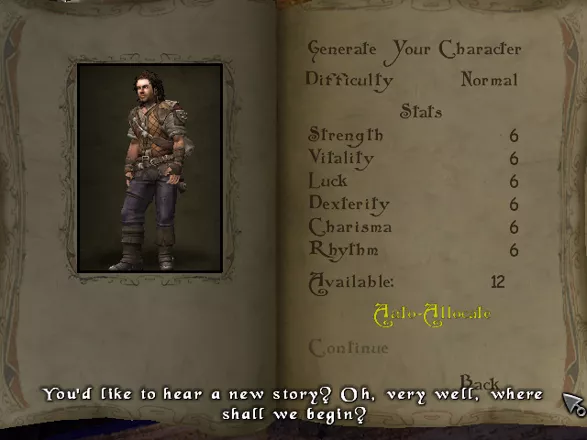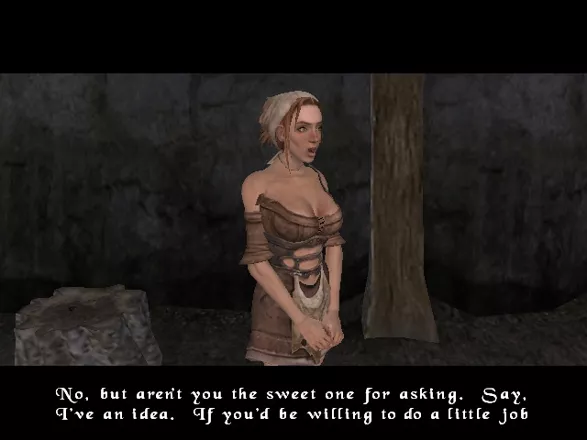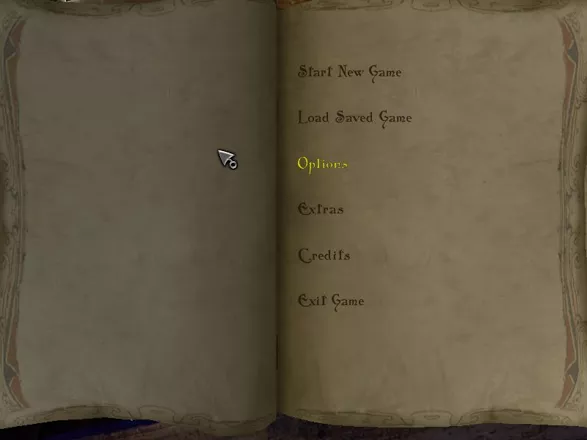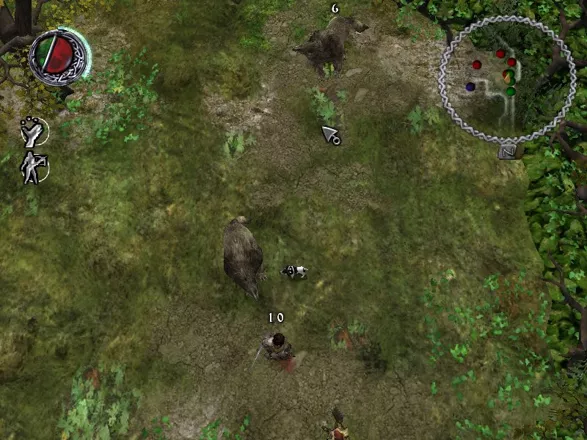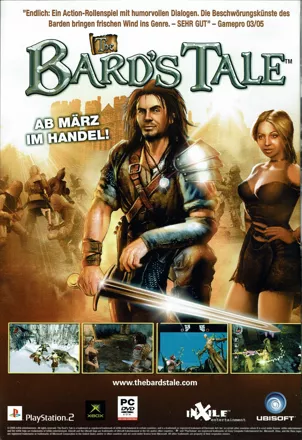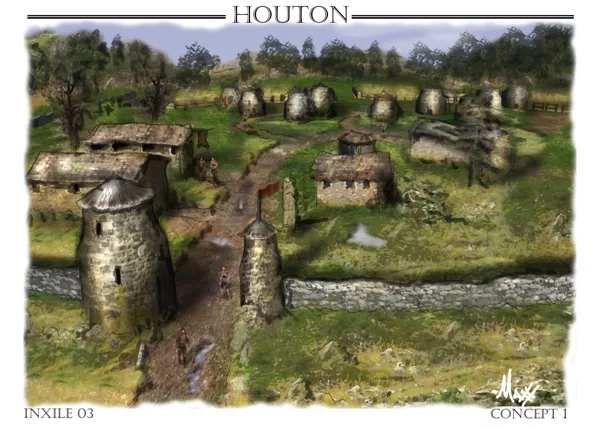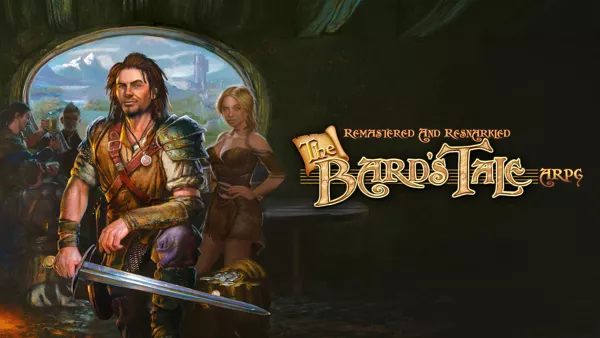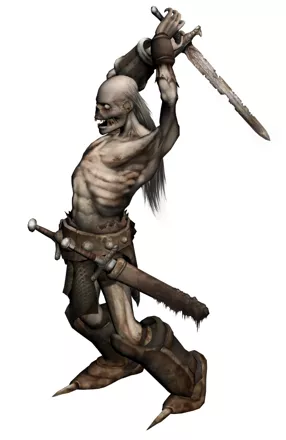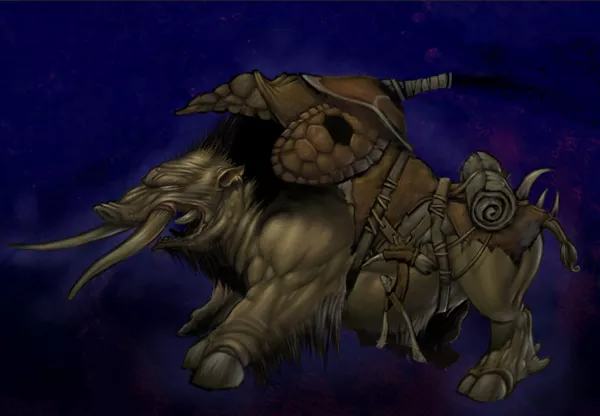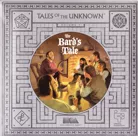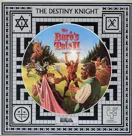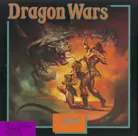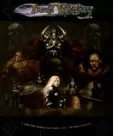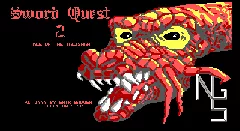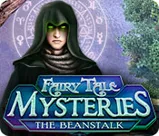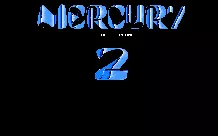The Bard's Tale
Description official descriptions
The Bard is a cynical, opportunistic musician who roams the country in search of carnal pleasures. However, this impatient and selfish fellow is compelled to accept the greatest quest of his life: save the princess Caleigh from a demonic cult that has kidnapped her. The unlikely hero must now explore the land in search of the princess, accompanied by the omnipresent Narrator who obviously can't stand the Bard and uses every opportunity to sarcastically comment on his actions. Furthermore, Fionnaoch, the mysterious abductor of the princess, does everything he can to stop the Bard, sending his minions after him.
A self-proclaimed "quest for coin and cleavage", The Bard's Tale is an action RPG that is more of a whimsical take on role-playing games than a remake of the classic series. As the Bard, players can fight off hordes of foes with blade and bow, and summon companions through magical Bard Songs. Leveling up allows the player to raise the character's main attributes and invest specialization points in the different types of weapons he can use. Magical companions must be sought out and then summoned during battles. After being summoned, they act pretty much like AI-controlled party members; some of them specialize in physical attacks and offensive spells, while others can heal the hero.
During conversations the player can choose "nice" or "snarky" responses for the protagonist. While mostly used for humorous effect, some of these responses may affect subsequent events. The game uses the Dark Alliance engine and has a similar camera and control scheme.
Spellings
- Похождения Барда - Russian spelling
- 冰城传奇 - Simplified Chinese spelling
- 新冰城傳奇 - Traditional Chinese spelling
- 바즈테일 - Korean spelling
Groups +
Screenshots
Promos
Videos
Add Trailer or Gameplay Video +1 point
See any errors or missing info for this game?
You can submit a correction, contribute trivia, add to a game group, add a related site or alternate title.
Credits (PlayStation 2 version)
137 People (128 developers, 9 thanks) · View all
| Original Concept and Design | |
| Creative Director | |
| Executive Producer | |
| Art Director | |
| Director Engineering | |
| Lead Designer | |
| VP Operations | |
| Senior Artist | |
| Character Designer | |
| Environmetal Design | |
| Animation | |
| Additional Art | |
| Senior Engineers | |
| Engineer | |
| AI Engineer | |
| Additional Engineering | |
| Lead Scriptor | |
| Scriptors | |
| Game Design and Writing | |
| [ full credits ] | |
Reviews
Critics
Average score: 74% (based on 51 ratings)
Players
Average score: 3.8 out of 5 (based on 78 ratings with 5 reviews)
Even mediocre endings don't lower the game's black "humour" level
The Good
I liked the game's "humour". It is mostly black, but it appears everywhere. All the dialogues, songs and approaches to solve the problem are full of it.
The game is 'rogue'-like RPG. It may even be described as a Diablo-clone, but it has many simplifications to make it closer to action/arcade. Such simplifications are good, in the meaning of such a game type.
One of simplifications is the ability only to buy items in store, but not to sell them. How is that good, you may ask? The good thing is the ability to sell the looted items automatically, if they are worse than items currently worn. Most of the items aren't used by the Bard in any way, so they are sold immediately.
Controls in the game are also very well designed. You may simply hit an opponent with a weapon by clicking on the button, or use a special ability of the weapon holding the button for a certain period of time. Simplified, but very useful.
The Bard's musical instrument is used to summon different allies in human-like form or in form of creatures. Such allies may simply help the Bard in combat killing enemies, while the Bard is smoking around, or open certain unlockable door with their unique abilities. Each ally is unique and combination of 16 allies allows to build tactics in combats.
With his level rising, the Bard may use different kinds of weapons and each of them has different influence on the enemies. Variation of the melee and range weapons also gave some sort of freedom.
There are many secret areas in the game. Such areas may be unlocked either performing certain wish or simply buying the map to such an area. But maps sometimes cost much money, and they can't be afforded by the Bard. So kill more enemies, loot more items, and buy the maps as fast as possible, because some events may occur in the game unexpectedly that untwist the plot cardinally, and ability to buy such maps may be lost as well as access to certain secret (or side-quest) areas.
During the game, the Bard collects the Tokens that increases his stats, but much of them may be taken only following the certain way in conversations or policy. Almost all useful items are hidden in chests or stumps, and it is tasks of the player to find and open them. They all are unlocked. Such simplification is also welcoming.
Conversations suppose the style of the Bard, and it is task of player to choose either to be snarky or good in tongue. Not always good style is useful, and it allows the player to be on his own.
The game is full of songs performed by game participants and may be used in Karaoke system to revive the memories.
The game is linear in general, at least in its plot, and you always come finally to the ending point, where you should choose one of three options to finish the game. All of them may be tried, but none of them is good to be real ending, though.
The Bad
First of all, I didn't like the movie sequences. I'm not sure that all platforms use such sequences, but Windows platform uses Windows Media Files (WMF) to play introduction, 3 endings, logos, etc. The quality of such movies are below all the possible standards for the period of time the game was released. I was very wondered that such movies exist in Low and High Quality formats. It seems that High Quality format was made for 640x400 resolution or lower, so I don't even mention Low Q. one. While the game may be played in 1280x1024 resolution, and the quality of the in-game engine is satisfactory, you do not have any desire to play the game to see the endings. They are awful in the terms of video quality.
The second thing is the content of the endings. I will not describe what they are about, but I may say that I did not play such a great game to see such mediocre endings. Any of them does not satisfy my expectations. So if you want to play, just don't expect to see something special in the end.
The third thing is game view. It is generally top-down, but in-game animations allow the camera to move in 3rd person view. Why the game does not allow this? It seems that some difficulties was encountered by game developers to prevent the player to have such a pleasure.
The Bottom Line
The game is not an RPG, it is mostly slash action with RPG elements. It includes underrated black "humour", many fights, songs for Karaoke, and twisted plot. The game relies mostly on its plot and style than on replayability in self-generated dungeons. There are three game endings of low quality, but the game should be played for the gameflow not for the result. It should be played by fans of mid 80s RPGs, may be played by fans of Diablo-clones, and should be at least looked at by all the players not indifferent to games with "humour" in its different kinds.
Windows · by POMAH (66432) · 2009
Dull game in a slightly funny outfit
The Good
A role-playing game that is a comedy all the way through is a rare beast. I can't think of anything else but Knights of Xentar, the classic of parodies, and perhaps Anachronox, with its share of humor exceeding usual limits. Tengai Makyō games probably had too many serious elements to be taken as true comedies.
The "new" Bard's Tale aspires to be humorous all the way through. The writing here is sometimes similar to such classics as Space Quest - laughing at the hero, breaking the fourth wall, etc. The humor focuses almost entirely on conversations. There are by the way quite nasty bits, almost reminiscent of GTA games. The two characters who steal the show are, of course, the Bard himself, and his omnipresent companion, the narrator. Bringing back the narrator, whose presence in games I missed so much since Quest for Glory IV, was one of the best decisions this game has taken. He can't stand the Bard, and he keeps teasing him with ironic narration of the story. There is something very British about the narrator, he has dry wit and is always skeptical of the Bard's success.
The game also boasts excellent voice acting and, as the icing on the cake, features musical performances. The "beer song" will stay in your mind long after the game has lost its appeal. Overall, if the musical theme were pursued more thoroughly we could have ended up with a pleasant comedy alleviating the boredom of the gameplay.
Speaking of which, the one element of the gameplay I liked was summoning. You don't have magic, but instead can summon various creatures who act like your party members. You can issue general commands to them, and the intended goal here is to build a balanced party with the most effective combination of skills and abilities. Not all summons are just given to you: some are found in optional areas, and their upgrades are particularly worth hunting down.
The "snarky" and "nice" options in conversations are a nice idea as well. Sadly, it is barely implemented, since most of the time your responses either do not affect the gameplay at all or result in insignificant rewards or penalties. The choice of three possible endings, however, is a definitive plus.
The Bad
There are many things wrong with Bard's Tale, the most obvious ones involving what are, in my opinion, the pillars of game design: gameplay and game world. I'll get to those soon, but first I'd like to point out that - apparently unlike many other reviewers - I don't think the game can even be enjoyed purely for its comedic value.
I don't think the game was really funny. A lot of people were delighted when the hero was breaking empty barrels at the request of a shop owner who wanted to make a profit out of it or when the narrator icily commented on the implausibility of wolves dropping gold bags. Unfortunately, this pretty much sums up the humor style of the entire game. The Bard half-heartedly mocks RPG cliches, the narrator keeps telling us how much of a loser our protagonist is, and... that's it. Sure, it's amusing at the beginning, but it grows old really fast. There are no funny characters to remember and no real wit in the dialogue. Without those, humor loses its significance, particularly when it keeps being applied to the same thing over and over again.
The real problem is the fact that while the humor in cutscenes and dialogues is present no matter what, it has absolutely no effect on the gameplay. Even worse: the gameplay is actually what the game laughs at! The dialogue constantly mocks stale RPG conventions, and the gameplay keeps following precisely those conventions in the most conservative way imaginable. It is as if the developers wanted to make it easier for themselves and turned to humor as an excuse for poor design.
Seriously: The Bard's Tale is a by-the-book action game with a semi-RPG system slapped onto it, as generic as they go, without anything to distinguish it from the very games it tries to lampoon. What is the use of satire applied to a situation where you have to climb a long boring tower to face a powerful boss if the game actually forces this same situation upon you right away? And this happens every time, everywhere. Take away the humorous cutscenes and you'll be left with monotonous, unimaginative hack-and-slash that makes Diablo games look like epitomes of sophisticated role-playing.
Whoever says The Bard's Tale is a "funny Diablo" fails to see that the heart of Diablo was not at all in its massive doses of repetitive action, but in its obsessively vast item-collecting opportunities and customization. Compare the limitless outfitting of Diablo to The Bard's Tale with its paltry selection of equipment, where a "stronger" sword directly replaces a "weaker" one and where all items automatically convert to silver coins! Compare the wealth and fine-tuning of character classes of Diablo II to the paltry sword-flail-bow choices of this game, of which none makes much difference anyway.
Indeed, The Bard's Tale is "streamlined" in that infuriating modern (some would say "console-like") way, when everything is all too convenient: all the stuff you'll ever need is being neatly laid at your feet, whatever you do leads to easy victory anyway, and exploration is just a matter of following an obvious corridor or clicking on a map icon. Why bother pumping up your strength if you are guaranteed to find a more powerful amulet that renders anything you've found so far obsolete? Why search for that perfect combination to give you the edge in combat if all you need to do is just follow the general direction of the game?
The only trouble you'll ever have is guaranteed to come from the game's atrocious perspective. The Gauntlet-like top-down view is absolutely unsuitable for a 3D action game and ruins even the simple pleasure you might have had from hacking your foes to pieces. I hope you like clumsily waving your sword around trying to figure out when it actually connects, or aiming your bow at red dots representing your off-screen enemies, pressing the fire button to hit them automatically regardless of your skills. Combat is simply not satisfying, badly needing dynamics and drama that come courtesy of a free-roaming 3D camera this game unfortunately hasn't heard about.
Perhaps as a result, the game suffers from a serious lack of atmosphere. You do not feel the beauty of open fields or the fear reigning in demonic caverns. Predictable layouts, mediocre graphics, and the aforementioned overhead view greatly diminish immersion in the game world.
The Bottom Line
In conclusion, The Bard's Tale is good only for a few laughs, and even those can't last long. The actual game behind the humorous facade is a completely run-of-the-mill, antiquated top-down slashfest with a shallow RPG angle. It is one of those games you'll be curious to check out, but never compelled enough to come back to.
Xbox · by Unicorn Lynx (181780) · 2014
There's a difference between pointing out clichés and avoiding them all together.
The Good
I don’t think I've ever played a game that started so strongly or sunk into mediocrity so quickly. The first hour of The Bard's Tale is simply brilliant. Sadly, only flashes of this brilliance show up over the next nineteen hours.
Within the first hour, The Bard is asked to kill at rat in the inn's basement, bumps into countless NPCs walking through Houton, and smashes many barrels. Of course the rat is fire-breathing, one of the NPCs demands an apology, and the barrel maker is paying him for each barrel he knocks off—it's good for business. This is The Bard's Tale at its best: pointing out RPG clichés and turning them on their heads or simply skewering them.
If you are a classic gamer, then this isn't The Bard's Tale you remember. There's no traditional party building or first-person jaunts down the streets of Skara Brae. This The Bard's Tale is an action RPG, equal parts sword & sorcery and tongue-in-cheek. It strongly resembles Dark Alliance, having the same engine and all, and plays out from that standard third-person once-removed viewpoint.
The Bard, voiced by Cary Elwes (Errol Flynn still being dead), is a rakish blackguard who's on a personal quest for "Coins and Cleavage", even though others (including the game's narrator) are trying to make a hero out of him. During conversations, The Bard has the option of being snarky or nice (i.e. marginally less snarky). This has an effect on game play—opening quests, gaining items, and the like—being snarky doesn't automatically trigger a bad outcome.
Before I get too far, I should mention this game is absolutely hilarious. The dialogue is always a delight to listen too, but so is skipping it—"Get to the good stuff," growls The Bard. Even generic quests, which are normally filler, are fodder for The Bard. The tutorial even features an exchange where The Bard berates someone who tells him to press the triangle button, "You're worse than that guy who went on about some invisible mouse."
In terms of role playing, The Bard's Tale is pretty bare bones. The Bard has the core attributes you'd expect and gains special combat abilities every few levels. Inventory collected (The Bard: Wanted Posters, Stonehenge Souvenirs, Weight Belts) automatically converts to gold. Stores only sell the bare essentials: swords, armor, flails and bows, and typically only have one of each type. There's no mixing and matching here, either you buy the weapon or armor upgrade or not. Also, if the store's inventory is worse than your current equipment, then the shopkeeper won't even talk to you.
As far as action, The Bard's Tale is a mixed bag. The Bard either uses a one-handed sword, a two-handed sword, a flail, or a bow. Combat is a matter of pressing one button to attack and another to block—which requires timing. The Bard detects enemies faster than they detect him, but once he's close enough to trigger them it's quite a battle. Luckily, The Bard has some friends along.
Using his magical instrument (whichever one's on hand), The Bard can summon a character that serves him until it dies or he unsummons it. Starting with the lowly rat (later upgraded to a Vorpal Rat), The Bard finds more characters to summon and finds instruments that lets him summon more than one character at a time. Whether it’s the Crone for healing, the Knight for combat, or the Trapper for dungeon crawling, most of the characters are essential to the game and they work well together—even commenting on the action from time to time. Also following The Bard are the omniscient Narrator (who hates The Bard) and (if you are lucky) The Dog—the best canine companion since Dogmeat.
The Bad
I usually find combat in games easy or hard. Here, it is tedious. Simply put, I'm not playing one of the funniest games ever written to kill 1000 trow (kinda like goblins). Unfortunately, The Bard's Tale is combat-intensive, even though combat controls are basic and weapon choices are limited. In fact combat is so poor here, I kept thinking of other games where it was better and where multiplayer was an option. You know, the games The Bard's Tale is poking fun at.
The Bard's Tale has no trouble mocking RPG clichés, but can't seem to avoid them. At one point, The Bard learns that he must fight his way to the top of a tower to free a princess. He grumbles that nothing ever takes place on ground level. At the first floor of the tower, he's confronted by the Boss who awaits him on the top level. "Can't we just finish this here," begs The Bard? The Boss agrees this makes sense, but that's not the way things work. Instead, The Bard must fight his way up three levels, fight the Boss, and then fight his way back down the three levels. Of course the princess wasn't at the top of this tower; The Bard must defeat all three tower bosses to rescue her. Rinse and repeat.
At least with Dark Alliance's tower battle, you have an interesting level design and the conviction of the characters. With The Bard's Tale, you have the sad case of a game that pokes fun at other games, but then delivers an end product worse than them. The Bard's Tale can joke about barrel-smashing, obligatory lava levels, and "Chosen Ones" all day, but isn't bright enough to figure out what to do instead.
The Bottom Line
I was disappointed by The Bard's Tale, but much of it is involving. It has great sound, great graphics, and top notch voice acting. However,I think the designers felt that gamers wouldn't accept an unconventional action RPG and hedged their bets. I'd like to see The Bard return (most of the alternate endings permit this), but in a game that's either shorter or sharper.
PlayStation 2 · by Terrence Bosky (5397) · 2004
Trivia
Extras
The Polish version contains the first three Bard's Tale games as a bonus, just like the US one, but apparently unlike any other European release.
Information also contributed by JRK
Analytics
Upgrade to MobyPro to view research rankings!
Related Sites +
-
Daily Game
Download the Strategy Guide (Adobe PDF) here. -
The Bard's Tale
Official Web Site -
The Bard's Tale
Official European Website
Identifiers +
Contribute
Are you familiar with this game? Help document and preserve this entry in video game history! If your contribution is approved, you will earn points and be credited as a contributor.
Contributors to this Entry
Game added by Terrence Bosky.
PlayStation 4, PS Vita added by mars_rulez. Nintendo Switch, Windows Apps, Xbox One added by Kam1Kaz3NL77. OnLive added by firefang9212. iPad, Macintosh, iPhone, Android, Ouya, BlackBerry added by Kabushi. Linux added by Iggi. Windows added by Jeanne.
Additional contributors: Unicorn Lynx, Jeanne, JRK, Sciere, Cigam, Stratege, Paulus18950, Patrick Bregger, Plok, Zhuzha.
Game added December 9, 2004. Last modified April 13, 2024.
